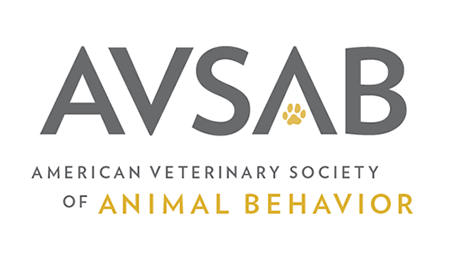AVSAB Position Statement On Puppy Socialization vs Waiting to Complete Immunization
By: David Codr
Published Date: April 11, 2019
American Veterinary Society of Animal Behavior
www.AVSABonline.org
The primary and most important time for puppy socialization is the first three months of life. During this time puppies should be exposed to as many new people, animals, stimuli and environments as can be achieved safely and without causing overstimulation manifested as excessive fear, withdrawal or avoidance behavior. For this reason, the American Veterinary Society of Animal Behavior believes that it should be the standard of care for puppies to receive such socialization before they are fully vaccinated.
Because the first three months are the period when sociability outweighs fear, this is the primary window of opportunity for puppies to adapt to new people, animals, and experiences. Incomplete or improper socialization during this important time can increase the risk of behavioral problems later in life including fear, avoidance, and/or aggression. Behavioral problems are the greatest threat to the owner-dog bond. In fact, behavioral problems are the number one cause of relinquishment to shelters. Behavioral issues, not infectious diseases, are the number one cause of death for dogs under three years of age.
While puppies’ immune systems are still developing during these early months, the combination of maternal immunity, primary vaccination, and appropriate care makes the risk of infection relatively small compared to the chance of death from a behavior problem.
Veterinarians specializing in behavior recommend that owners take advantage of every safe opportunity to expose young puppies to the great variety of stimuli that they will experience in their lives. Enrolling in puppy classes prior to three months of age can be an excellent means of improving training, strengthening the human-animal bond, and socializing puppies in an environment where risk of illness can be minimized.
For this reason, the American Veterinary Society of Animal Behavior believes that it should be the standard of care for puppies to receive such socialization before they are fully vaccinated.
In general, puppies can start puppy socialization classes as early as 7-8 weeks of age. Puppies should receive a minimum of one set of vaccines at least 7 days prior to the first class and a first de-worming. They should be kept up-to-date on vaccines throughout the class.
To view the statement in its entirety, go to https://avsab.org then click on Position Statements.
Robert K. Anderson DVM
Diplomate ACVB and ACVPM
Professor and Director Emeritus, Animal Behavior Clinic and
Center to Study Human/Animal Relationships and Environments University of Minnesota 1666 Coffman Street, Suite 128, Falcon Heights, MN 55108
——————————————————————————-
Puppy Vaccination and Socialization Should Go Together
TO: My Colleagues in Veterinary Medicine:
Common questions I receive from puppy owners, dog trainers and veterinarians concern: 1) what is the most favorable age or period of time when puppies learn best? 2) what are the health implications of my advice that veterinarians and trainers should offer socialization programs for puppies starting at 8 to 9 weeks of age.
Puppies begin learning at birth and their brains appear to be particularly responsive to learning and retaining experiences that are encountered during the first 13 to 16 weeks after birth. This means that breeders, new puppy owners, veterinarians, trainers and behaviorists have a responsibility to assist in providing these learning/socialization experiences with other puppies/dogs, with children/adults and with various environmental situations during this optimal period from birth to 16 weeks. Experience and epidemiologic data support the relative safety and lack of transmission of disease in these puppy socialization classes over the past 10 years in many parts of the United States.
Many veterinarians are making this early socialization and learning program part of a total wellness plan for breeders and new owners of puppies during the first 16 weeks of a puppy’s life — the first 7- 8 weeks with the breeder and the next 8 weeks with the new owners. This socialization program should enroll puppies from 8 to 12 weeks of age as a key part of any preventive medicine program to improve the bond between pets and their people and keep dogs as valued members of the family for 12 to 18 years.
To take full advantage of this early special learning period, many veterinarians recommend that new owners take their puppies to puppy socialization classes, beginning at 8 to 9 weeks of age. At this age they should have (and can be required to have) received a minimum of their first series of vaccines for protection against infectious diseases. This provides the basis for increasing immunity by further repeated exposure to these antigens either through natural exposure in small doses or artificial exposure with vaccines during the next 8 to 12 weeks. In addition the owner and people offering puppy socialization should take precautions to have the environment and the participating puppies as free of natural exposure as possible by good hygiene and caring by careful instructors and owners.
Experience and epidemiologic data support the relative safety and lack of transmission of disease in these puppy socialization classes over the past 10 years in many parts of the United States. In fact; the risk of a dog dying because of infection with distemper or parvo disease is far less than the much higher risk of a dog dying (euthanasia) because of a behavior problem. Many veterinarians are now offering new puppy owners puppy socialization classes in their hospitals or nearby training facilities in conjunction with trainers and behaviorists because they want socialization and training to be very important parts of a wellness plan for every puppy. We need to recognize that this special sensitive period for learning is the best opportunity we have to influence behavior for dogs and the most important and longest lasting part of a total wellness plan.
Are there risks? Yes. But 10 years of good experience and data, with few exceptions, offers veterinarians the opportunity to generally recommend early socialization and training classes, beginning when puppies are 8 to 9 weeks of age. However, we always follow a veterinarian’s professional judgment, in individual cases or situations, where special circumstances warrant further immunization for a special puppy before starting such classes. During any period of delay for puppy classes, owners should begin a program of socialization with children and adults, outside their family, to take advantage of this special period in a puppy’s life.
If there are further questions, veterinarians may call me at 651-644-7400 for discussion and clarification.
Robert K. Anderson DVM, Diplomat, American College of Veterinary Preventive Medicine and Diplomat of American College of Veterinary Behaviorists
Categorized in: Dog Psychology


